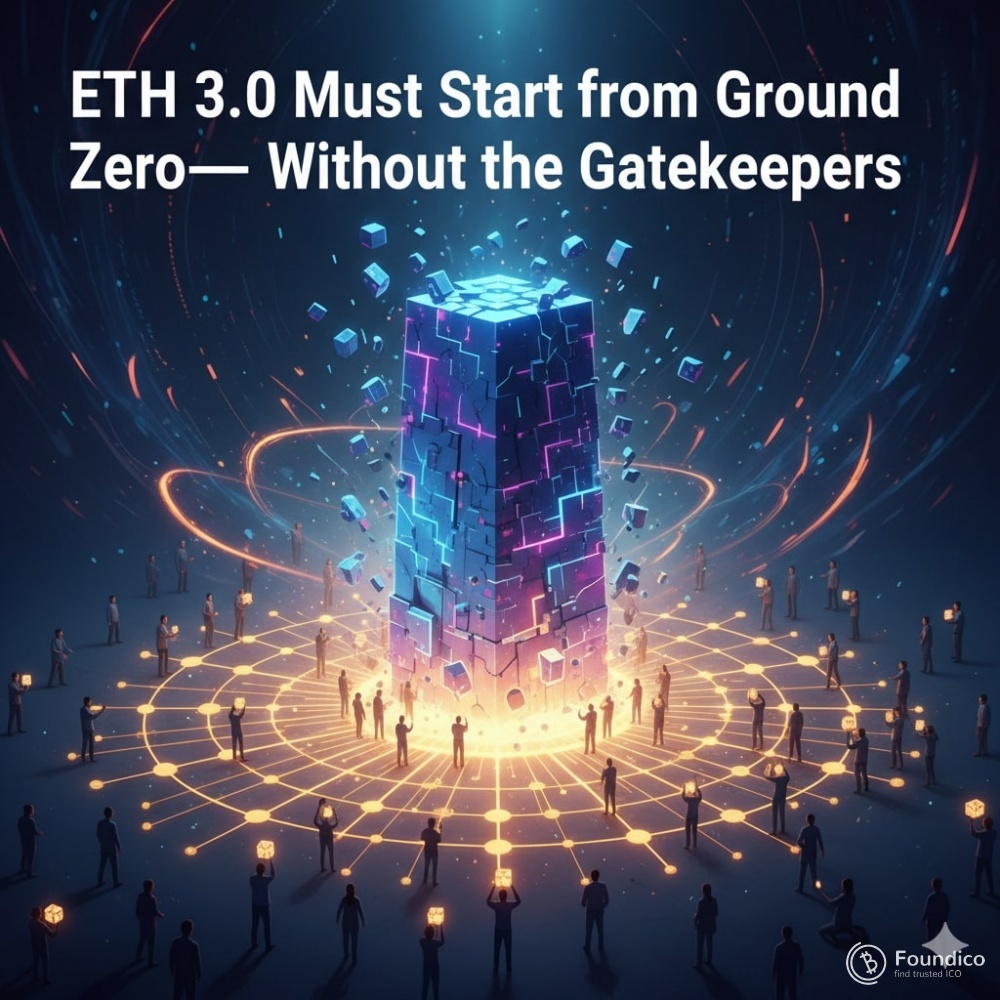ETH 3.0 Must Start from Ground Zero—Without the Gatekeepers

By Dr. Pooyan Ghamari, Swiss Economist and Visionary
The discourse surrounding the future of Ethereum—the next iteration often optimistically labeled "ETH 3.0"—is fundamentally flawed. It presupposes that the monumental edifice of the current blockchain can simply be patched, upgraded, or iteratively improved into the truly decentralized, scalable, and equitable global computer the world desperately needs. I argue this is a failure of vision. The path to a genuine Web3 future, truly free from the concentration of power, demands a revolutionary, rather than an evolutionary, step: ETH 3.0 must start from ground zero—without the gatekeepers.
The very foundation of Web3 promises a shift in power from centralized platforms to the users. Yet, as Ethereum has matured, we have inadvertently allowed new gatekeepers to emerge. The infrastructure is now dominated by a handful of large staking pools, corporate entities building layer-two solutions, and major institutions heavily influencing governance. This concentration—whether in computational power, capital, or decision-making authority—contradicts the core tenet of decentralization.
An "ETH 3.0" built upon the existing structure will merely inherit and cement these new forms of centralization. The complexity of the current system, its accumulated technical debt, and the entrenched interests of its largest stakeholders act as a gravitational pull back toward the old paradigm. We risk creating a Web3 that is simply a more complex, less transparent, and ultimately less democratic version of Web2.
To achieve the original, lofty ambition of Ethereum, we must embrace a radical, clean-slate approach:
-
Re-Engineer for True Distributed Consensus: The next generation of Ethereum must not just be technically complex, but structurally hostile to large-scale capital accumulation in validating power. We need to devise entirely new consensus mechanisms—or radically simplify existing ones—that prioritize the participation of the individual over the economy of scale. This means making it prohibitively expensive, in terms of capital or complexity, for any single entity to control a significant portion of the network.
-
A New Governance Covenant: The protocol must be launched with a clearly defined, non-negotiable governance model that actively prevents the centralization of power. This new covenant must safeguard against protocol changes that benefit major stakeholders at the expense of the decentralized community. It must hard-code the principle that the individual user's voice is the most valuable asset in the network.
-
Simplify the Core Layer: The current design has become a patchwork of complex solutions layered upon one another. A fresh start allows us to design an ultra-minimalist, robust, and highly secure Layer 1 whose sole purpose is to serve as an immutable settlement layer. All complexity, all corporate applications, and all the attendant gatekeeper risk should be pushed exclusively to permissionless, interoperable Layer 2s, which are forced to compete purely on efficiency and innovation, not network influence.
This is not a call to abandon the technology or the community. It is a demand that we honor the philosophy. The economic incentive for a true ETH 3.0 is not in maximizing the current token value for a few, but in creating a genuinely permissionless, anti-fragile, global economic infrastructure for all.
A fresh start is not an act of destruction; it is an act of liberation. Only by clearing the ground of existing power structures and vested interests can we build the true, decentralized future—one where there are no corporate or institutional gatekeepers, only users, builders, and a common protocol. The time for iterative updates is over. The time for a visionary re-genesis has begun.

 Best Wallet - Best Wallet Token, revolutionizing the Web3 experience. $BEST token reduces transaction fees, grants exlusive early access to the hottest presales and gamifies wallet engagement.
Best Wallet - Best Wallet Token, revolutionizing the Web3 experience. $BEST token reduces transaction fees, grants exlusive early access to the hottest presales and gamifies wallet engagement.